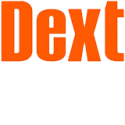Happy Thanksgiving! Our office will be closed on November 27th and 28th.
Visit Us on Facebook!Retirement Plan Options for Small Businesses
By: Charles Z Tzinberg
Our primary objective is to furnish comprehensive and insightful information to consider when deciding whether to institute a retirement plan for your business. Ultimately, the decision depends on your specific situation, goals, and business model.
Here are some factors to consider when deciding whether to offer a retirement plan:
Employee retention and recruitment: Offering a retirement plan can make your business more attractive to potential employees. It can also increase employee loyalty and retention, as they may be less likely to leave if they are building long-term financial security with your company
Tax benefits: Establishing a retirement plan may provide tax benefits for your business. For example, employer contributions to a retirement plan may be tax-deductible, and small businesses may also be eligible for tax credits to offset the costs of implementing a qualified retirement plan.
Employee morale and productivity: Providing a retirement plan can boost employee morale and productivity. Employees who feel secure about their financial future may be more focused and committed to their work.
Cost and administrative requirements: Offering a retirement plan will involve costs for your business, such as plan administration, record-keeping, and employer contributions. Additionally, you will need to ensure compliance with applicable laws and regulations, which may require dedicated time and resources. Historically, retirement plans were only offered by large employers because of the high costs. Because of changes in the laws, the automation provided by computers, and competition this is no longer the case. Under some circumstances, a plan can be instituted with no administrative costs.
Business size and growth plans: The size of your business and its growth plans may also be factors in offering a retirement plan. If you have a smaller business but plan to grow in the future, implementing a retirement plan now may be a strategic move to attract and retain talented employees.
What are the common options for business retirement plans?
Individual 401(k) Plan: Frequently the best choice for owner-only businesses no employees other than the owner. Has all the benefits of a traditional 401(k), high contribution limits, easy administration, and low cost.
SIMPLE IRA: SIMPLE stands for Savings Incentive Match Plan for Employees. A traditional IRA is set up for employees and allows both employees and employers to contribute. SIMPLEs provide some degree of flexibility in that employers can choose to either offer a matching contribution to their employee’s retirement account or make nonelective contributions. Contributions are deductible by the business, and the plan has minimal administrative requirements.
Simplified Employee Pension (SEP) IRA: Designed for small businesses and self-employed individuals, it allows employers to contribute to employees' SEP-IRA accounts. Contributions are deductible by the business, and the plan has minimal administrative requirements.
Business 401(k) Plan: Employees can make pre-tax contributions from their salary, and employers may choose to match a portion of those contributions. There can allow higher contributions than SIMPLEs or SEPs.
Profit-sharing plan: This plan allows employers to make discretionary contributions to employees' retirement accounts based on the company's profits. The contribution amount and allocation method can vary year-to-year, providing flexibility for the business. Profit-sharing can be an option in some 401(k) plans.
Defined benefit pension plan: This type of plan promises a specific monthly benefit at retirement, typically based on the employee's salary and years of service. Although less common today due to their higher cost and complexity, some businesses still choose to offer defined-benefit pension plans.
Employee Stock Ownership Plan (ESOP): This plan provides employees with ownership interests in the company through the allocation of company stock. ESOPs can serve as both an employee retirement plan and a succession planning tool for business owners. ESOPs are not normally used by smaller businesses.
Each type of retirement plan comes with its own set of rules, regulations, and administrative requirements. It's essential to consult with a financial advisor, benefits consultant, or tax professional to determine the most suitable plan for your business and employees.
If you would like to discuss this topic further, please contact us. We can help you review available retirement plan options, find the best fit, and set up the plan with you.






